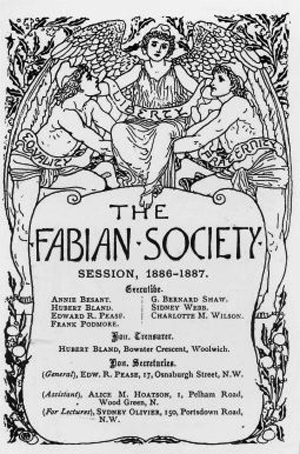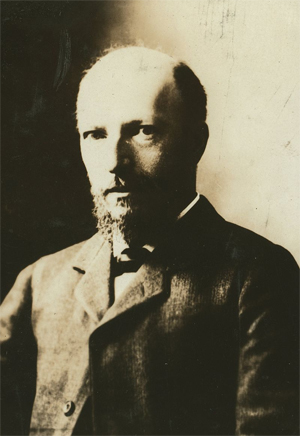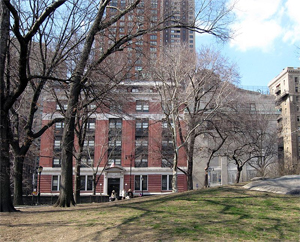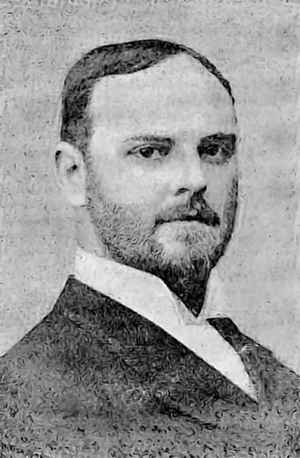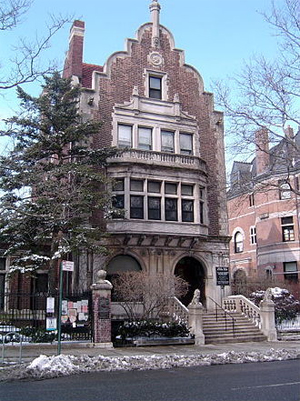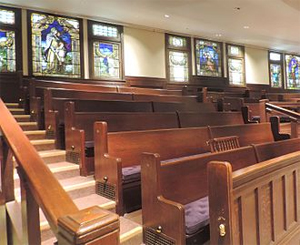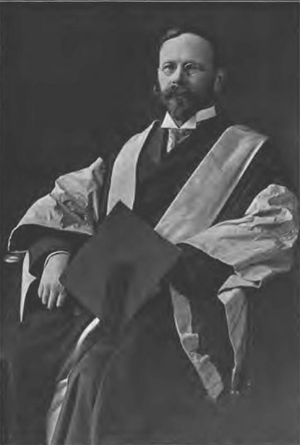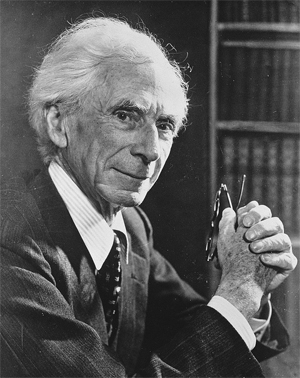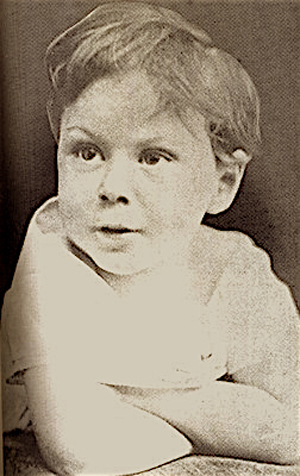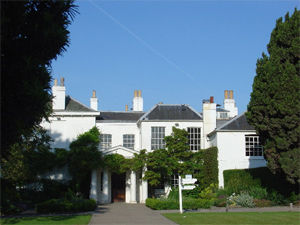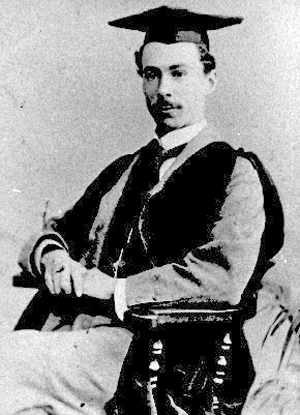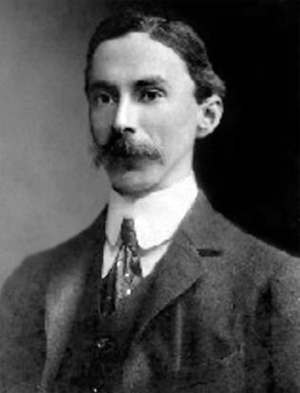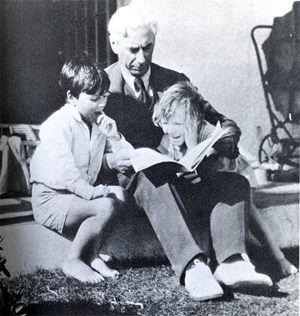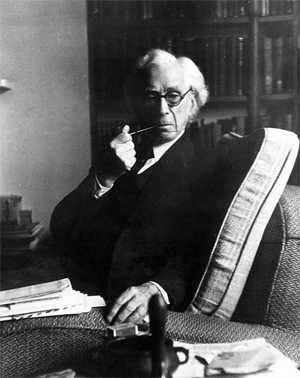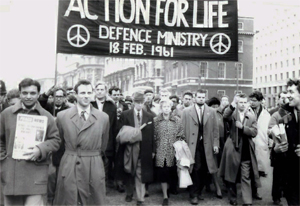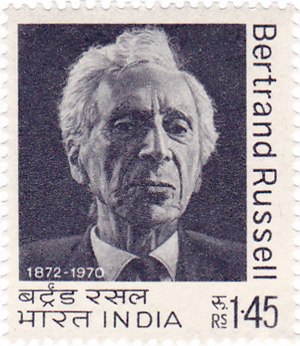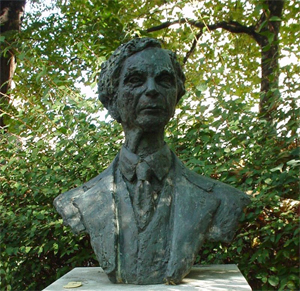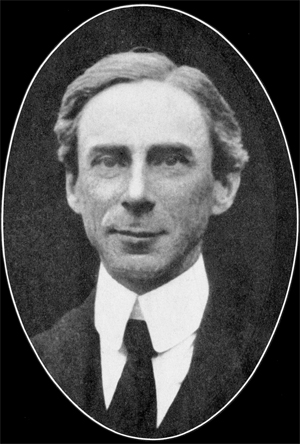Shripad Amrit Dange
by Wikipedia
Accessed: 4/16/20
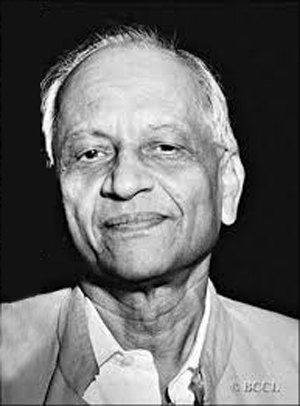
Shripad Amrit Dange
Member of the Indian Parliament for Bombay City North
In office: 15 April 1952 – 4 April 1957
Preceded by: Constituency established
Succeeded by: V. K. Krishna Menon
Member of the Indian Parliament for Bombay City Central
In office: 5 Apr 1957 – 31 March 1962
Preceded by: Jayashri Naishadh Raiji
Succeeded by: Vithal Balkrishna Gandhi
Member of the Indian Parliament for Bombay Central South
In office: 4 March 1967 – 27 December 1970
Preceded by: Vithal Balkrishna Gandhi
Succeeded by: Abdul Kader Salebhoy
Personal details
Born: 10 October 1899, Karanjgaon, Bombay Presidency, British India (now Maharashtra, India)
Died: 22 May 1991 (aged 91), Bombay, Maharashtra, India
Spouse(s): Ushatai Dange
Shripad Amrit Dange (10 October 1899 – 22 May 1991) was a founding member of the Communist Party of India (CPI) and a stalwart of Indian trade union movement. During the British Raj, Dange was arrested by the British authorities for communist and trade union activities and was jailed for an overall period of 13 years. After India's Independence, a series of events like Sino-Soviet split, Sino-Indian war, and the revelation that while in jail, Dange had written letters to the British Government, offering them cooperation, led to a split in the Communist Party of India, in 1964. The breakaway Communist Party of India (Marxist) (CPI(M)) emerged stronger both in terms of membership and their performance in the Indian Elections. Dange, who remained the Chairman of the CPI till 1978, was removed in that year because the majority of party workers were against Dange's political line of supporting Indian National Congress, and Indira Gandhi, the then Congress Prime Minister. He was expelled from the CPI in 1981. He joined the All India Communist Party (AICP), and later, United Communist Party of India. Towards the end, Dange got increasingly marginalised in the Indian Communist movement. He was also a well-known writer and was the founder of Socialist the first socialist weekly in India. Dange played an important role in the formation of Maharashtra state.
Early years
Shripad Amrutpant Dange was born in 1899, in the village of Karanjgaon in Niphad Taluka of Nashik District, Maharashtra. His father worked in Mumbai as a government officer and was a major landowner of the area and lived in one palace-like house in Karanjgaon. Dange was sent to study in Pune. He was expelled from college for organising a movement against compulsory teaching of the Bible. While in work, Dange was exposed to conditions of workers when he undertook voluntary work in the textile mill areas of Mumbai. Dange was drawn into active politics by the fervour of the nationalist movement against the British rule in India.[1] Bal Gangadhar Tilak, a veteran leader of the Indian National Congress from Maharashtra, the earliest proponent of [url]swaraj[/url] (complete independence) greatly inspired young Dange. Later, when Mahatma Gandhi launched the Non-Cooperation Movement in 1920, Dange gave up his studies and joined the Independence movement.[1]
Swarāj (Hindi: स्वराज swa- "self", raj "rule") can mean generally self-governance or "self-rule", and was used synonymously with "home-rule" by Maharishi Dayanand Saraswati and later on by Mohandas Gandhi, but the word usually refers to Gandhi's concept for Indian independence from foreign domination. Swaraj lays stress on governance, not by a hierarchical government, but by self governance through individuals and community building. The focus is on political decentralisation. Since this is against the political and social systems followed by Britain, Gandhi's concept of Swaraj advocated India's discarding British political, economic, bureaucratic, legal, military, and educational institutions. S. Satyamurti, Chittaranjan Das and Motilal Nehru were among a contrasting group of Swarajists who laid the foundation for parliamentary democracy in India.
-- Swaraj, by Wikipedia
He became interested in Marxism, while following the Russian Revolution of 1917. He grew increasingly skeptical about Gandhism, especially about Gandhi's promotion of cottage industries as the sole solution for India's economic ills, while overlooking possibilities of an industrial economy.
Gandhi Vs. Lenin
In 1921, Dange published a pamphlet titled Gandhi vs. Lenin, a comparative study of approaches of both the leaders; but, Lenin coming out as better of the two. This work proved to be a turning point in Dange's life. Prominent Marxist leader M.N. Roy read the work and went on to meet its young author, when he came to Mumbai. Ranchoddas Bhavan Lotvala, a flour mill owner from Mumbai who 'concerned himself for radical causes', also read this treatise and was impressed by its contents. Lotvala sponsored Dange's study of Marxism for several years, and together they built up a library of Marxist Literature and published translations of classics.[2]
In 1922, with Lotvala's help, Dange launched the English weekly, Socialist, the first Indian Marxist journal.[citation needed] Later Mohit Sen, Dange's contemporary and a well-known communist intellectual, wrote that Dange's articles in the Socialist impressed Lenin himself.[3]
Influence of Bolshevik Revolution
The second decade of the 20th century proved to be formative years for young Dange. The period also witnessed worldwide economic crises. There were long strikes in the industrialized world, especially in Britain. In India, the working class movement gained steady momentum during this period. It was during one of the long textile mill strikes that Dange got himself acquainted with the conditions of laborers.
The period also coincided with influence of Bolshevist ideas, following the Russian Revolution of 1917, manifesting in political events in countries outside Russia. This process was quickened by the establishment of the Third International or the Communist International, or in popular parlance—its abbreviated form -- Comintern, an international communist organisation founded in Moscow in March 1919. As a resolution adopted in the Founding Congress of the Comintern its stated objective was to fight 'by all available means, including armed force, for the overthrow of the international bourgeoisie and for the creation of an international Soviet republic as a transition stage to the complete abolition of the State'.[4]
Meeting with M.N. Roy
M.N. Roy, an ex-member of the Anushilan Samiti, perhaps the most important secret revolutionary organisation operating in East Bengal in the opening years of the 20th century, went to Moscow in by the end of April 1920.[5] The new Russian government under Lenin evinced interest in him and encouraged him to form an Indian Communist Party. Roy went on to found the émigré Communist Party of India on 17 October 1920[6] in Tashkent. On his return to India, M.N. Roy who had read Gandhi Vs. Lenin met Dange in 1922. Dange at that time was closely associating with Lotvala to spread Marxian ideas. It was during this period that Dange grew in prominence as a Marxist; a sure way those days to invite antagonism from the British Government.
Foundation of the Communist Party of India
The British Empire saw the founding of Comintern as a disruptive force that would cause internal disorder. It viewed the nascent leftism in India with great suspicion. During the 1920s, the Government foisted a series of 'conspiracy cases'[7] against persons whom they suspected to have communist leanings.
Dange in the eyes of the British authorities
During this period M.N. Roy, the spokesperson of the Comintern, was seen as the most dangerous of Indian communists. During that time all the letters written by Roy from Moscow to Dange were intercepted and delivered.[8]
The British government initially did not think Dange was dangerous.
In 1923, they came to the conclusion that they did not have enough to prove anti-government activity as "Dange is a pure doctrinaire and nothing here seen of him indicate any real power of organisation." The Government of India soon changed its mind and the file notes that 'The evidence collected clearly shows that Dange has been an important figure in the conspiracy as constant reference to his name would be unavoidable in any event in the prosecution to be instituted against other members of the conspiracy at [Allahabad].[8]
The conspiracy referred to here is the Kanpur Conspiracy Case that would catapult Dange to a leader with national prominence.
Kanpur Bolshevik conspiracy case
On 17 March 1924, M.N. Roy, S.A. Dange, Muzaffar Ahmed, Nalini Gupta, Shaukat Usmani, Singaravelu Chettiar, Ghulam Hussain and others were charged, in what was called the Cawnpore (now spelt Kanpur) Bolshevik Conspiracy case. The specific charge was that they as communists were seeking "to deprive the King Emperor of his sovereignty of British India, by complete separation of India from imperialistic Britain by a violent revolution."
The case attracted interest of the people towards Comintern plan to bring about violent revolution in India. Communist trials had taken place in India, in frontier towns like Peshawar where Russian trained muhajir communists were put on trial. "But no case had attracted public gaze like the Kanpur case. Pages of newspapers daily splashed sensational communist plans and people for the first time learned such a large scale about communism and its doctrines and the aims of the Communist International in India."[9]
Singaravelu Chettiar was released on account of illness. M.N. Roy was out of the country and therefore could not be arrested. Ghulam Hussain confessed that he had received money from the Russians in Kabul and was pardoned. Muzaffar Ahmed, Nalini Gupta, Shaukat Usmani and Dange were sentenced for various terms of imprisonment.[9] This case was responsible for actively introducing communism to the Indian masses.[9] Dange was released from prison in 1925.
Formation of the Communist Party of India
The industrial town of Kanpur, in December 1925, witnessed a conference of different communist groups, under the chairmanship of Singaravelu Chettiar. Dange, Muzaffar Ahmed, Nalini Gupta, Shaukat Usmani were among the key organisers of the meeting. The meeting adopted a resolution for the formation of the Communist Party of India with its headquarters in Bombay.,[10] The British Government's extreme hostility towards communists, made them to decide not to openly function as a communist party; instead, they chose a more open and non-federated platform, under the name the Workers and Peasants Parties.
Initial years of labor movement in India
In 1920 the All India Trade Union Congress (AITUC) was formed at Mumbai by N.M. Joshi and others. Joshi was a philanthropist who was sympathetic to the workers'cause. At that time AITUC did not have a cohesive ideology, but it was sympathetic to the Indian National Congress.[11] When Dange wrote about the founding session of AITUC at Mumbai, he brought out the organisation's Congress roots:
The AITUC was guided principally by the Congress leaders. The masses at this period were being led by Lokmanya Tilak and his group, in which Lala Lajpat Rai from Punjab, Bepinchandra Pal from Bengal and others had a big place. Mahatma Gandhi had refused to sponsor the idea of founding the AITUC and so he did not attend.[12]
Communists were also largely excluded when, again in Mumbai, in 1923, jobbers and mill clerks came together and started Girni Kamgar Mahamandal (Great Association of Mill-Workers). They participated in the long textile strike in 1924.[13]
Girni Kamgar Union
The early trade union movement in India were not directly inspired by the communists. Dange played an important role in bringing the labor activists amongst Bombay textile workers under the communist umbrella. Girni Kamgar Mahamandal was split and the communists formed their own union, the Girni Kamgar Union during the general strike of 1928.
The linkages which were forged in this strike placed the communists firmly in control of the Girni Kamgar Mahamandal and enabled them to dominate trade union movement. They were now forced to confront problems forced by the structure of industrial relations. The initiative taken by the communist leadership in reflecting working class-militancy enabled them to establish their presence at the level of industry as a whole. To consolidate this position it was imperative that the Girni Kamgar Union as it is now called to penetrate the level of the individual mill...On 30 October 1928 the Girni Kamgar Union had a membership of 324; by the end of that they boasted 54000 members.[13]
Two long and bitter strikes in 1928 and 1929 involving the members of Girni Kamgar Union followed. Dange was the general secretary of the Girni Kamgar Union. For their role in the strikes he was arrested along with Muzaffar Ahmed and Shaukat Usmani.
Dange edited the Marathi journal, Kranti, the official organ of the Girni Kamgar Union from the time of its inception.
Comintern's involvement
Believing that the world capitalism was in crisis, during the 1920s the Comintern deployed its workers to various countries. Indian communists had forged a close relationship with Communist Party of Great Britain. In 1926 and 1927 members of the British Communist Party, notably Philip Spratt and Ben Bradley, came to India.[14] mandated by Comintern to work among the industrial laborers of Bombay and Calcutta(present spelling: Kolkatta). Workers' and Peasants' Parties were started in those cities and in the United Provinces.
The communists were addressing ground level problems and as a result "N.M. Joshi, in spite of money and no persecution from the government lost the leadership (of AITUC) to the communists.[15]" The communists took over the leadership of the AITUC in December 1929, when their rivals, led by N.M.Joshi, walked out of the session, and founded a rival organisation. Like rest of the world, it was a period of great unrest in India too.
In India throughout 1928 and 1929 there was a strong wave of strikes, on the railroads, in ironworks and in the textile industry. 31 million working days lost in 1928, through industrial disputes. Trade union numbers and organisation grew rapidly during this period."[16]
Muzaffar Ahmed, Usmani and Dange joined these later campaigns on their release from jail.
Meerut Conspiracy Case
Main article: Meerut Conspiracy Case
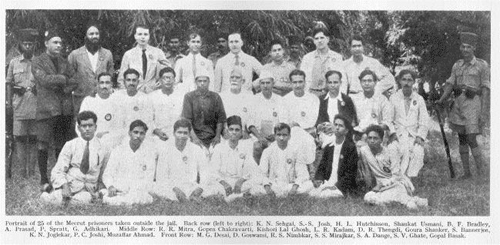
Portrait of 25 of the Meerut Prisoners taken outside the jail. Back row (left to right): K. N. Sehgal, S. S. Josh, H. L. Hutchinson, Shaukat Usmani, B. F. Bradley, A. Prasad, P. Spratt, G. Adhikari. Middle Row: R. R. Mitra, Gopen Chakravarti, Kishori Lal Ghosh, L. R. Kadam, D. R. Thengdi, Goura Shanker, S. Bannerjee, K. N. Joglekar, P. C. Joshi, Muzaffar Ahmed. Front Row: M. G. Desai, D. Goswami, R.S. Nimbkar, S.S. Mirajkar, S.A. Dange, S. V. Ghate, Gopal Basak.
The British Government was clearly worried about the growing influence of the Communist International. Its ultimate objective, so the government perceived, was to achieve "complete paralysis and overthrow of existing Governments in every country (including India) by means of a general strike and armed uprising.".[16] The government's immediate response was to foist yet another conspiracy case—the Meerut Conspiracy Case.
In more than one way the Meerut Conspiracy case trial helped the Communist Party of India to consolidate its position among workers. Dange along with 32 persons were arrested on or about 20 March 1929[16] and were put on trial under Section 121A of the Indian Penal Code, which declares,
Whoever within or without British India conspires to commit any of the offenses punishable by Section 121 or to deprive the King of the sovereignty of British India or any part thereof, or conspires to overawe, by means of criminal force or the show of criminal force, the Government of India or any local Government, shall be punished with transportation for life,[17] or any shorter term, or with imprisonment of either description which may extend to ten years.
The charges
The main charges were that in 1921 Dange, Shaukat Usmani and Muzaffar Ahmad entered into a conspiracy to establish a branch of Comintern in India and they were helped by various persons, including the accused Philip Spratt and Benjamin Francis Bradley, sent to India by the Communist International. The aim of the accused persons, according to the charges raised against them was
to deprive the King Emperor of the sovereignty of British India, and for such purpose to use the methods and carry out the programme and plan of campaign outlined and ordained by the Communist International.
The Sessions Court in Meerut awarded stringent sentences to the accused in January 1933. Out of the accused 27 persons were convicted with various durations of 'transportation'. While Muzaffar Ahmed was transported for life, Dange, Spratt, Ghate, Joglekar and Nimbkar were each awarded transportation for a period of 12 years. On appeal, in July 1933, the sentences of Ahmed, Dange and Usmani were reduced three years. Reductions were also made in the sentences of other convicts.[16]
Impact of Meerut Conspiracy Case
Though all the accused were not communists, the charges framed against them betrayed the British government's fear for growth of communist ideas in India. In the trial the accused were all labeled as Bolsheviks. During the trial of four and a half years, the defendants turned the courtroom into a public platform to espouse their cause. As a result, the trial saw strengthening of the communist movement in the country. Harkishan Singh Surjeet, a former General Secretary of the Communist Party of India (Marxist) wrote about the aftermath of the Meerut Conspiracy case thus:
a Party with a centralized apparatus, came into being only after the release of the Meerut prisoners, in 1933. The Meerut Conspiracy Case, though launched to suppress the communist movement, provided the opportunity for Communists to propagate their ideas. It came out with its own manifesto and was affiliated to the Communist International in 1934.[18]
The CPI and the independence movement
During the period, prior to India's Independence, the Communist Party of India's responses to freedom struggle were dictated by the Comintern's views. After its admission to the Third International, the Communist Party of India was seen to be guided by the policies imposed by Joseph Stalin on the international communist movement. Stalin's policies were, in turn, dictated by Russia's geopolitical interests. As a result the positions taken by the CPI ran many times counter to popular nationalist sentiments, leading to erosion of the Party's popular base.
Up to 1934, the CPI viewed India's freedom struggle as a movement of the reactionary bourgeoisie politicians. The British government had banned communist activities from 1934 to 1938. When the Comintern adopted the Georgi Dimitrov thesis of popular front against fascism, CPI declared support for the Congress in 1938. The communist leaders like Dinkar Mehta, Sajjad Zaheer, E.M.S. Namboodiripad, and Soli Batliwala became members of the national executive of the Congress Socialist Party.
The Raj re-banned the CPI in 1939, for its initial anti-War stance. The line was changed when, following the Nazi-Soviet pact (1939-40). The Communist Party of India did not take an active stance against Adolf Hitler and his policies. But when Hitler attacked Poland, the Communist Party of India had called World War II, an 'Imperialist War'. But when he attacked the Soviet Union, the same Communist Party of India decided to call the war, a People's War[19].
After the USSR had sided with the Great Britain in the war, the Communist Party of India was legalised for the first time. Saying that the freedom struggle would impede the war against fascism, the CPI stayed away from the freedom struggle. The Indian National Congress was able to politically corner the communists, as the popular sentiments were overwhelmingly supporting Gandhi's Quit India Movement.
Dange in 'P.C. Joshi era'
After the sudden arrest of then Somnath Lahiri, Secretary of CPI, during end-1935, Puran Chand Joshi became the first general secretary of Communist Party of India, for a period from 1935 to 1947—or as it was called the 'P.C. Joshi era.'
In 1943 Dange for the first was elected to the Central Committee of the CPI.[20] In October 1944 he attended the XVII Congress of the Communist Party of Great Britain in London as a fraternal representative from the Communist Party of India. Between 1929 and 1935 Dange remained in jail for role in Meerut conspiracy case. After being released from jail in 1935, Dange went on a speaking tour in Andhra Pradesh on the invitation of the Congress Socialist Party leadership from there. His tour resulted in that many prominent Congress Socialist Party leaders from Andhra Pradesh joining the Communist Party.[21] After he came out of the jail, up to 1939, he was working for the Party and was trying increase its hold over the trade union movement.
Around this time Dange's legislative career also took off. He was elected to the Bombay Legislative Assembly as Communist candidate in 1946.
Dange's rise in trade union movement
In 1939 Dange was convicted to four months of rigorous imprisonment for organising a strike of textile workers. He was arrested on 11 March 1940 for leading a general strike of textile workers in Bombay and interned in the Deoli Detention Camp. At Deoli several other communist leaders were also jailed along with him. In prison he started a political study circle amongst the prisoners. He was released in 1943.[22]
Even before the takeover of the AITUC by the communists, in 1927, Dange was elected Assistant Secretary of AITUC.[23]" During the year 1943- 1944 Dange was elected for the first time as the chairman of the All India Trade Unions Congress.
In 1944-1945 he was a delegate to the World Trade Union Conference in London. In 1945-1947 he became the vice chairman of the All India Trade Union Congress. Also in October 1945 he became a member of the Executive Committee and chairman of the General Council of the World Federation of Trade Unions. In February 1947, Dange again became the chairman of All India Trade Union Congress and continued to be at the helm of that organisation either as general secretary or chairman.
CPI on the eve of independence
Around the time that the British decided to transfer power to the Indians, the CPI found itself in a not very happy situation. For once their disassociation with the Quit India movement made them unpopular with the people. Secondly huge support that the Congress garnered ran contrary the CPI's portrayal of it as a mere bourgeoisie party.
Internationally also CPI found itself lost. At the start of World War II, the Comintern supported a policy of non-intervention, arguing that the war was an imperialist war between various national ruling classes. But when the Soviet Union itself was invaded on 22 June 1941, the Comintern changed its position to one of active support for the Allies. Stalin disbanded Comintern in 1943. It is surmised that the dissolution came about as Stalin wished to calm his World War II Allies (particularly Franklin Delano Roosevelt and Winston Churchill) not to suspect that the Soviet Union was pursuing a policy of trying to foment revolution in other countries.[24]
The CPI was in a state of confusion and the Party clearly needed advice. In July 1947, P.C. Joshi, the then General Secretary, secured Dange's entry to USSR.
Dange in Moscow
On the day India got freedom, 15 August 1947 Dange was in Moscow talking to the Soviet leaders. Andrei Zhdanov and Mikhail Suslov, leading Soviet theorists of the period, participated in the 1947 talks with Dange.
The following free and frank exchange between Dange and Zhdanov on the day after the India's Independence day, that is, on 16 August 1947, brings out the chaotic situation in which the Communist Party of India found itself at that historical juncture:
Further com. Zhdanov asks com. Dange to explain why the Congress managed to strengthen its authority.
Comrade Dange opines that during the war the Congress, taking into account the anti-English sentiments of the wide masses, opposed the English and by this action acquired a semblance of a national organisation fighting for the national sovereignty.
The Communist Party during the war supported the allies, including the English and by this action weakened its influence as a lot of people could not correctly understand the position of the Party. A considerable part of the supporters of the Communist Party during the war shifted to the Congress.[25]
The Soviet leaders closely questioned Dange about the Congress. For years questions regarding what attitude should be taken toward the Congress would be debated inside the left parties in India. The following portion shows Dange's attitude towards the Congress and Muslim League, at that time.
Com. Zhdanov: What is Nehru – a capitalist or a landowner?
Com. Dange: A bourgeois.
Com. Zhdanov: And Jinnah?
Com. Dange: Also a bourgeois. He is an eminent advocate, has acquired a lot of money and has invested it in enterprises. Nehru also belongs to a family of eminent advocates and has invested his substantial savings in the Indian company of Tata.... .[25]
The 1950s: internal strifes within the CPI
Around the time of independence the CPI was sending confusing signals—from left to centrist to right. General Secretary Joshi was advocating unity with the Indian National Congress under the leadership of Jawaharlal Nehru. By the end of 1947, P.C. Joshi found himself in the minority. His line was challenged by the radicals who claimed that "ye azaadi jhoota hai[26]". B.T. Ranadive, a prominent radical leader, was inspired by the great strides that the Chinese communists had made, and wanted a similar model for India.
The Communist Party of India’s second congress at Calcutta (new spelling Kolkata) on 28 February 1948, the Zhdanov line of insurrection was adopted on the premise that 'free' India was only a "semi-colony of British imperialism". Joshi, who stood collaboration with Congress was sidelined, and Ranadive became the General Secretary. Open call for taking up arms, known as 'Calcutta thesis' and was closely identified with its main proponent and the new General Secretary, Ranadive. As a result insurgencies took place in Tripura, Telangana and Travancore.
A rebellion in the Telangana region in the northern part of what was to become Andhra Pradesh, a peasant struggle against the feudal regime of the Nizam was already happening when Calcutta thesis was adopted. To use the Telangana rebellion to herald in the Indian revolution was one of the main pillars of Ranadive strategy. During the peak of Telangana rebellion, 3,000 villages and some 41,000 square kilometers of territory were involved in the revolt. The ruler of Hyderabad state, nizam had not yet acceded his territory to India, but the violence of the communist-led rebellion, the central government sent in the army in September 1948. By November 1949, Hyderabad had been forced to accede to the Indian union, and, by October 1951, the violent phase of the Telangana movement had been suppressed.
Dange had been a member of the CPI Central Committee since the founding of the Party. But during 1950-1951 he was not included in the Central Committee.
Stalin's intervention
At the start of the 1950s, the CPI was bitterly divided over the manner in which political power in India should be captured. The militants advocated the 'Chinese path', or capture of power through violent means and the other group that included Dange was for the 'Indian path'(a moderate strategy to capture power within the constraints of Indian Constitution.
The proponents of the `Chinese path' led by C. Rajeswara Rao and those of the `Indian path' led by Ajoy Ghosh had set up their own centers and the CPI was on the verge of a split.[27]
On 30 May 1950, the extremists with hundreds of their followers split from the Party and came out in the open.[28] When the war of attrition between both continued unabated, the Soviet Communists intervened. The warring leaders were invited to Russia for a discussion with the Communist Party of the Soviet Union (CPSU) in 1951.
Events that followed were described Mohit Sen thus:
Four leaders, two from each center, were brought to Moscow. They travelled in cognito as manual workers in a Soviet ship from Calcutta. They were Ajoy Ghosh and S.A. Dange from the 'Indian Path', and C. Rajeswara Rao and M. Basava Punnaiah, from the Chinese path.
S.A. Dange and C. Rajeswara Rao have both told me about the meeting with the leaders of the CPSU. The first meeting was attended from the Soviet side by Comrades Suslov, Malenkov and Molotov. It was on the third day that it was announced that Comrade Stalin would attend. So he did for subsequent days....
Stalin's view also was that India was not an independent country but ruled indirectly by British colonialists. He also agreed that the Communists could eventually advance only by heading an armed revolution. But this would not be of the Chinese type. He strongly advised that the armed struggle being conducted in Telangana should be ended.[27]
In 1951, Dange was elected to both the Central Committee and the Politburo. In 1952 Dange lost elections to the Indian Parliament from Bombay.
Visit of Bulganin and Khrushchev to India
In mid-1955, Jawaharlal Nehru, the then Indian Prime Minister visited USSR and received a tremendous welcome. This was followed by the maiden visit to India of the Soviet leaders, Nikolai Bulganin and Nikita Khrushchev in 1955. Jawaharlal Nehru, frankly put forward to the visiting Soviet leaders that the Communist Party of India was claiming to receive direction from the CPSU.
To this Khrushchev's response was a reiteration of the official Soviet Party line, that with the abolition of the Comintern, there was no organisation for leading the Communist Parties in other countries. Khrushchev and Bulganin's visit paved way for forging of a strong relationship between the Government of India (and later Congress Party) and the USSR, independent of CPI.
Further dissensions
The party was again on the verge of split at its fourth congress held at Palakkad in 1956. Against the ultra-left line of Ranadive, Dange and P.C. Joshi were for reviving the 'popular front' and working with the ruling Indian National Congress. These differences within the Communist Party of India, up to Palakkad congress was an internal matter of the Party; the international communist movement at that time was united. Ranadive who was earlier shunned for his extremism made a comeback to the Party leadership at the Palakkad congress.
Formation of Maharashtra
After India's independence in 1947, the princely states were integrated into the Indian Union, and the Deccan States including Kolhapur were integrated into Bombay State, which was created from the former Bombay Presidency in 1950. The Government of India had appointed the States Re-organisation Committee for setting up states on the basis of language. This committee recommended a bi-lingual state called Bombay for Maharashtra-Gujarat, with Bombay as its capital. The state came into being on 1 November 1956, but stirred up political unrest in both the states. In Maharashtra, under the leadership of Keshavrao Jedhe, an all-party meeting was held in Pune and a joint Maharashtra council (Samyukta Maharashtra Samiti) was founded. In the second general elections the Samiti defeated the stalwarts of Congress by securing 101 seats out of 133, including 12 from Mumbai.
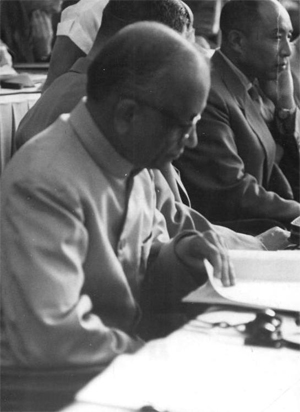
Shripad Amrit Dange representing the CPI at the fifth congress of the Socialist Unity Party of Germany, Berlin. 12 July 1958.
Dange was elected to the 2nd Lok Sabha in 1957 from Bombay City (Central) Constituency of the State of Bombay.[29]
Dange along with S.M. Joshi, N.G. Gore and P.K. Atre fought relentlessly for Samyukta Maharashtra, a struggle that cost a lot of lives. Finally on 1 May 1960, pre-dominantly Marathi-speaking state of Maharashtra was born.
Dange was later elected to the 4th Lok Sabha in 1967 from Bombay City (Central) Constituency of the Maharashtra State.[29]
Sino-Indian border dispute
Dange was the leader of the Communist group in the House of the People (Lok Sabha), when the Sino-Indian border dispute broke out—an event that would sharpen the differences within the CPI. The Calcutta Congress at the end of September 1959 brought into open the differences within the Party. As Manchester Guardian reported:
Half the party wants to express its support for the Congress stand that there will be no gift (to China) of the and that India stands broadly by the McMahon line. The other half wants to go back to guerrilla tactics and give up the parliamentary experiment. The nationalist parliamentary wing of the CP, led by Ajoy Ghosh, believes that the time for violence has not come and that Moscow counsels patience.... The other half of the ICP (sic), fed up with the parliamentary experiment, argues that Kerala proved that the ruling class will never allow a people's Government to capture power democratically. This is the first time that the ICP has been so s divided, and that the division has become so public.[30]


